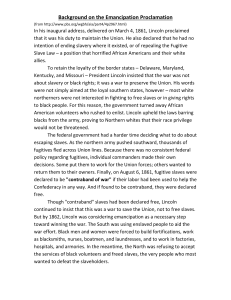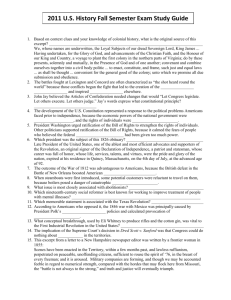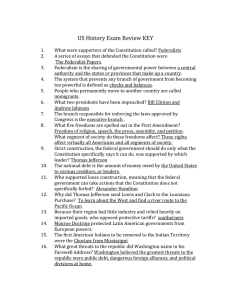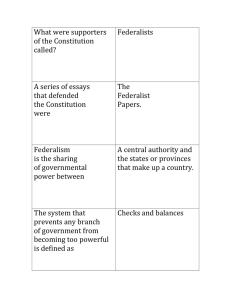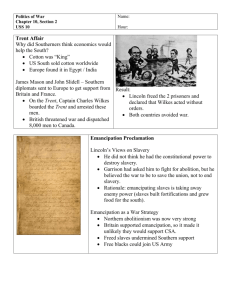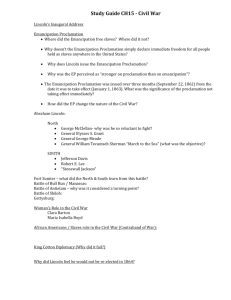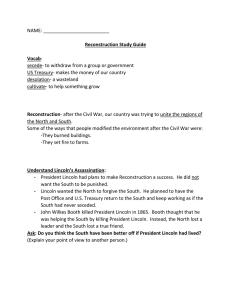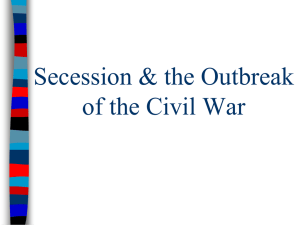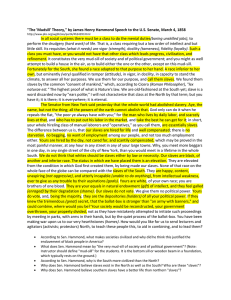Background on the Emancipation Proclamation
advertisement
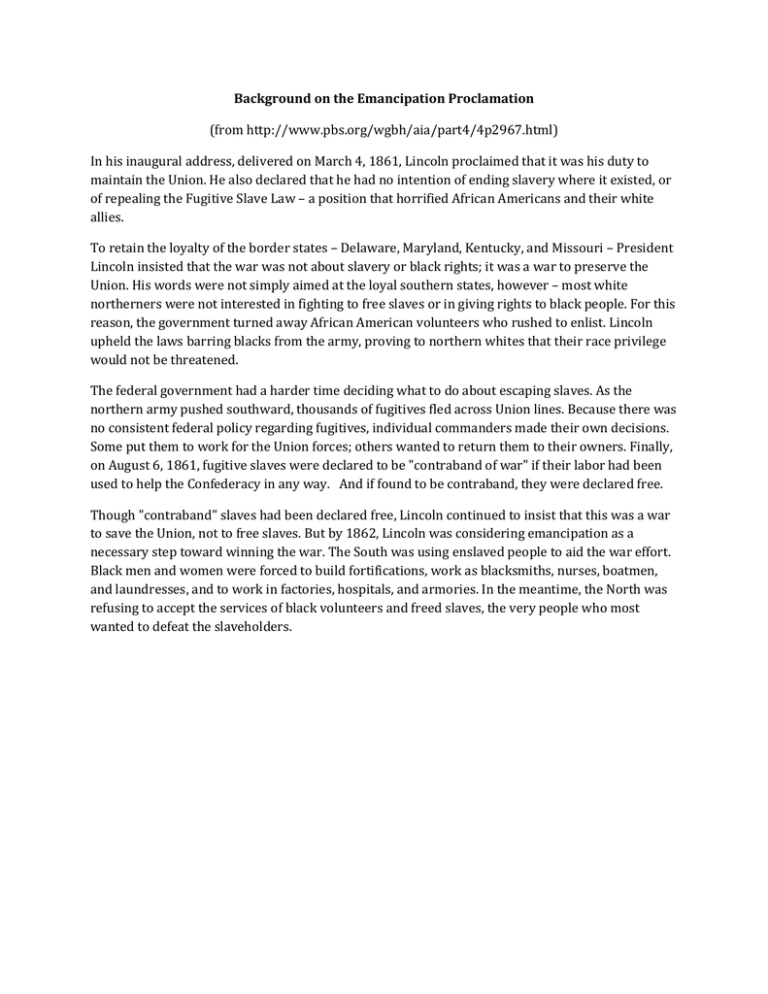
Background on the Emancipation Proclamation (from http://www.pbs.org/wgbh/aia/part4/4p2967.html) In his inaugural address, delivered on March 4, 1861, Lincoln proclaimed that it was his duty to maintain the Union. He also declared that he had no intention of ending slavery where it existed, or of repealing the Fugitive Slave Law – a position that horrified African Americans and their white allies. To retain the loyalty of the border states – Delaware, Maryland, Kentucky, and Missouri – President Lincoln insisted that the war was not about slavery or black rights; it was a war to preserve the Union. His words were not simply aimed at the loyal southern states, however – most white northerners were not interested in fighting to free slaves or in giving rights to black people. For this reason, the government turned away African American volunteers who rushed to enlist. Lincoln upheld the laws barring blacks from the army, proving to northern whites that their race privilege would not be threatened. The federal government had a harder time deciding what to do about escaping slaves. As the northern army pushed southward, thousands of fugitives fled across Union lines. Because there was no consistent federal policy regarding fugitives, individual commanders made their own decisions. Some put them to work for the Union forces; others wanted to return them to their owners. Finally, on August 6, 1861, fugitive slaves were declared to be "contraband of war" if their labor had been used to help the Confederacy in any way. And if found to be contraband, they were declared free. Though "contraband" slaves had been declared free, Lincoln continued to insist that this was a war to save the Union, not to free slaves. But by 1862, Lincoln was considering emancipation as a necessary step toward winning the war. The South was using enslaved people to aid the war effort. Black men and women were forced to build fortifications, work as blacksmiths, nurses, boatmen, and laundresses, and to work in factories, hospitals, and armories. In the meantime, the North was refusing to accept the services of black volunteers and freed slaves, the very people who most wanted to defeat the slaveholders.


